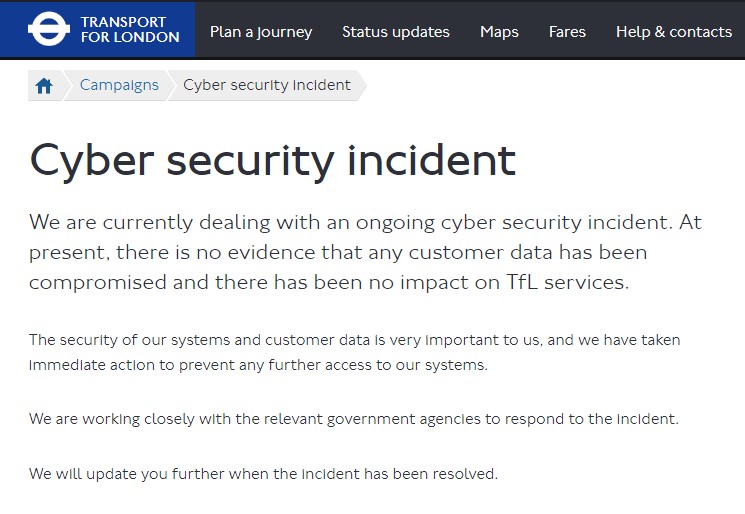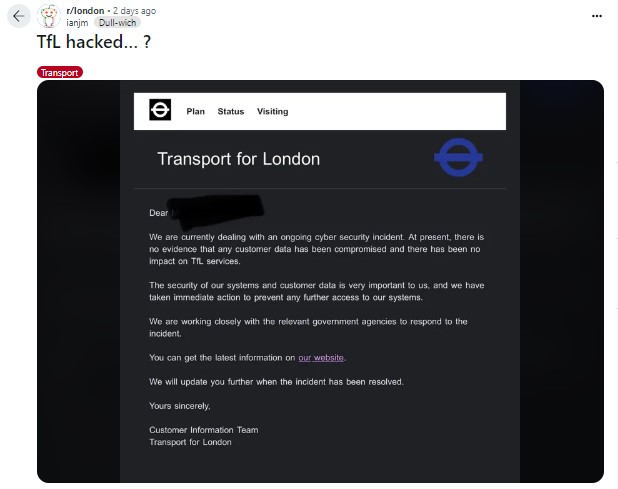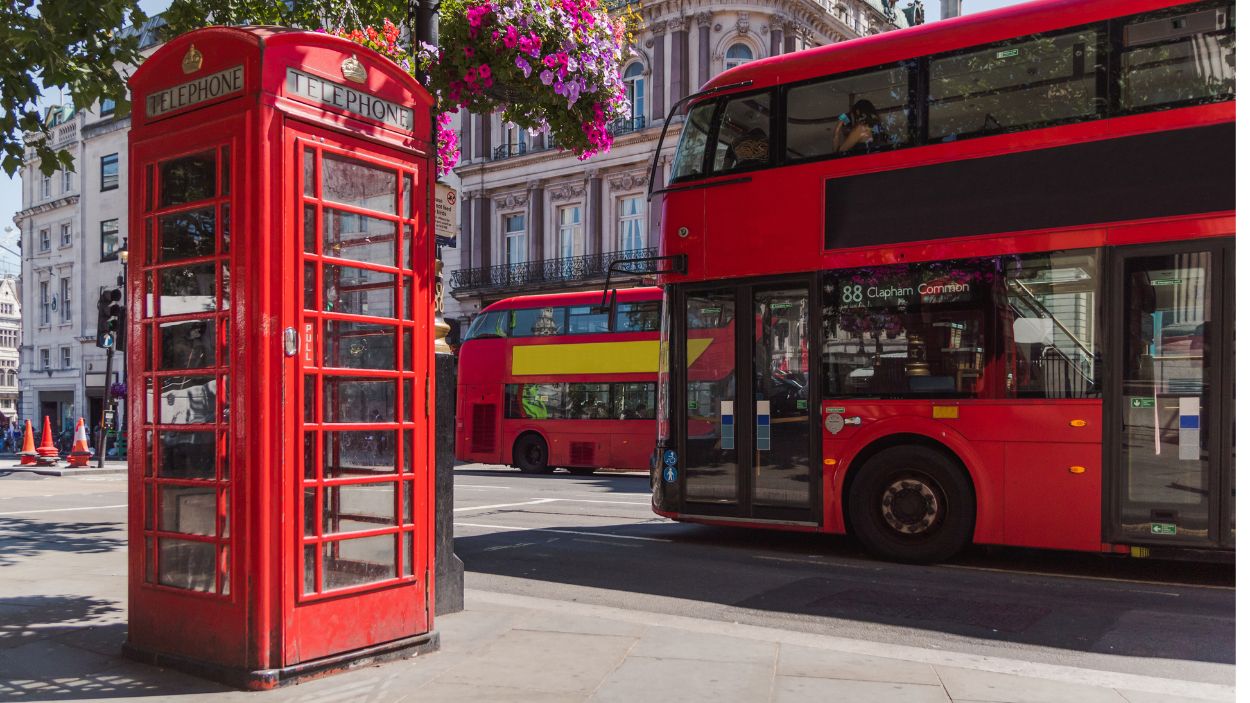Contents:
Transport for London (TfL) announced on September 2nd that they have detected an ongoing cybersecurity incident. The attack did not disrupt services. For the moment, there is no evidence of the attackers succeeding to compromise customers data.
TfL’s security team noticed an unauthorized access attempt into their systems. They immediately limited access due to monitoring tools detecting suspicious activities. The team took security measures to contain the incident and notified the relevant government agencies.

Source – Transport for London
The National Crime Agency and National Cyber Security Centre are currently continuing the investigation.
Additionally, TfL notified their customers via email regarding the incident.

Source – Reddit r/london community
No Wi-Fi in the office for TfL employees
The official statement on Transport for London’s website and the email to customers did not reveal much. However, the organization’s employees said they were asked to work from home. As a containment measure, the security team cut off wi-fi access at the office.
Otherwise, transportation services remained functional as usual.

Source – Reddit r/london community
Why are hackers attacking public services?
A 2023 report on cyberattacks targeting governments and public services worldwide showed a 40% increase in frequency. Not later than June 2024, a ransomware attack disrupted services in several major NHS hospitals in London. Healthcare and transportation sectors seam to be one of the hackers’ favorite targets.
Here’s why:
- Public services often confront with a lack of resources. This leads to lack of skilled personnel, using outdated infrastructure and little to no upgrades of the security system. Using a unified XDR platform to protect sensitive data and other assets of a public service institution could solve this problem.
Unified security platforms streamline various tools to prevent, detect and respond to incidents. This means that instead of buying and managing several tools from different vendors, you’ll reduce costs and effort to only one item that covers it all.
A fast and effective incident response can prevent hackers from compromising sensitive data. Using advanced cybersecurity technologies is critical for achieving that goal.
- Healthcare and transportation institutions deal with huge personal information databases. Sensitive data are a very attractive asset for threat actors, who will try seizing and selling them on dark forums.
- Disruption in public services leads to halting critical activities. Ransomware attacks on hospitals, for example, can lead to postponing blood transfusions, surgeries, tests, and other procedures. The consequences of halting healthcare activities can be life threatening. Hackers know and try to exploit that type of pressure, to extort money.
TfL stated they’ll soon reveal other details regarding the incident, as soon as the ongoing investigation advances.
If you liked this article, follow us on LinkedIn, Twitter, Facebook, and Youtube, for more cybersecurity news and topics.










 Network Security
Network Security
 Vulnerability Management
Vulnerability Management
 Privileged Access Management
Privileged Access Management  Endpoint Security
Endpoint Security
 Threat Hunting
Threat Hunting
 Unified Endpoint Management
Unified Endpoint Management
 Email & Collaboration Security
Email & Collaboration Security








